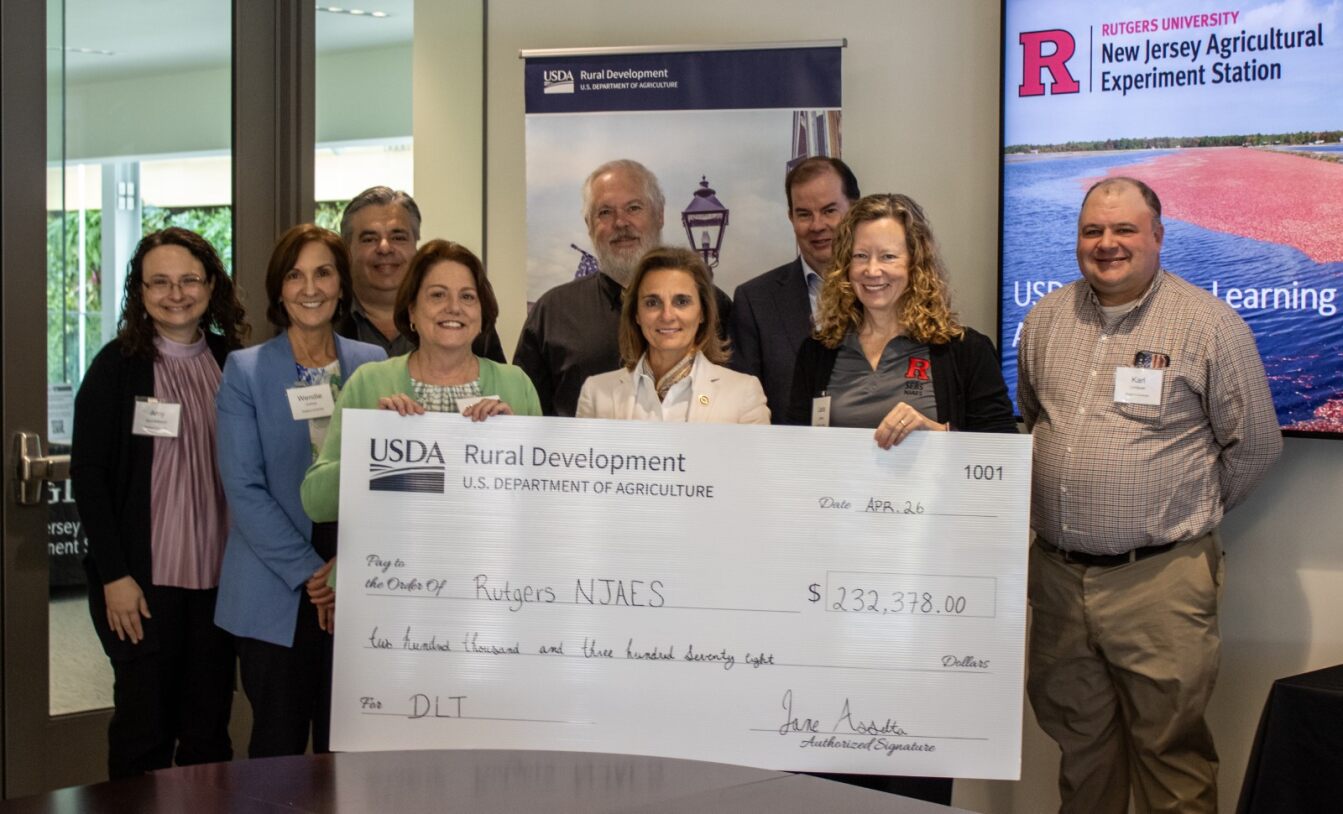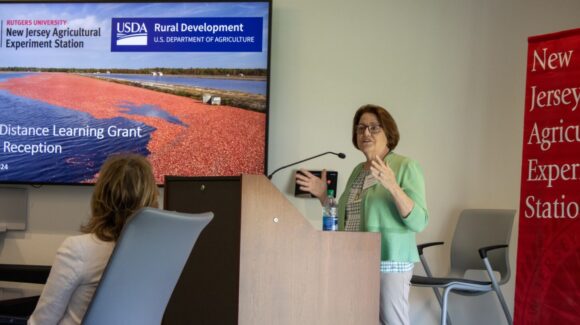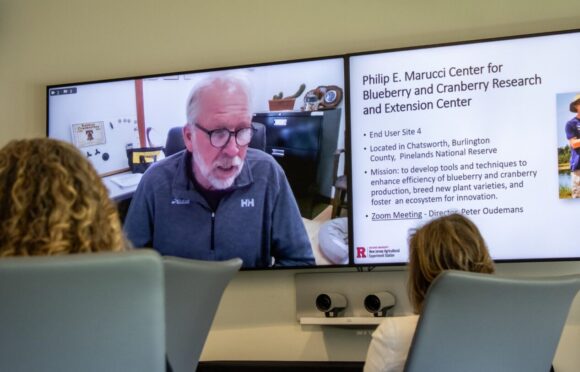
Rutgers received a $232K USDA grant for distance learning focused around food and agriculture. Photo credit: Derek Vanhorn, USDA.
On April 26, USDA and Rutgers New Jersey Agricultural experiment Station (NJAES) leadership announced a $232,378 Distance Learning grant at the university’s Institute for Food, Nutrition, and Health (IFNH) in New Brunswick.
Rural Development State Director Jane Asselta was joined by NJAES Executive Director Laura Lawson, and NJAES senior associate directors Peggy Brennan-Tonetta, Wendie Cohick and Brian Schilling to announce the details of the project, which provides distance learning services and equipment to support agricultural and food business viability and sustainability in southern New Jersey.
The project was funded under the Rural Utilities Service (RUS) Distance Learning and Telemedicine Loan and Grant Program (DLT), and will be used to equip two hub sites and two end-user sites with state-of-the-art distance learning equipment to provide critical education and training to agricultural and food businesses in the rural southern part of New Jersey. Rutgers Institute for Food, Nutrition, and Health on the New Brunswick campus will be linked to three outlying research and extension facilities, including Rutgers Food Innovation Center, Rutgers Agricultural Research and Extension Center and Phillip E. Marucci Center for Blueberry and Cranberry Research and Extension.

Peggy Brennan-Tonetta speaks at the event. Photo credit: Derek Vanhorn, USDA.
“We are thrilled to receive this funding from the Distance Learning and Telemedicine program. It will enable NJAES to connect our farmers and food related businesses, as well as the communities that depend on these businesses, with the vast resources at the main Rutgers campus and the NJAES food and agricultural facilities in rural South Jersey,” said Brennan-Tonetta who is the project lead.
A wide variety of training and distance learning courses will be offered including topics such as plant diseases, soil health, health and nutrition, food safety, risk management, regulatory compliance, value-added products, business development, and more. “This funding expands the information delivery mechanisms of Cooperative Extension to open up new opportunities for economic growth and access to educational resources,” stated Schilling, project co-lead.
Asselta, a Rutgers University Douglass College graduate, underscored her connection to Rutgers and highlighted the commitment of the federal government to providing access to education, training and healthcare resources for thousands of ag operators and residents.
“Serving rural New Jersey and supporting Rutgers University are two things near and dear my heart. The Biden Administration is working to increase farm income, reduce costs for farmers, and provide access to high-speed internet to improve efficiencies so farming in New Jersey continues to be a way of life. Providing funding to help close the technological gap between rural areas and agricultural education opportunities is critical to long-term sustainability of New Jersey’s farmers,” said Asselta.

Peter Oudemans speaks during a virtual call using grant-funded technology. Photo credit: Derek Vanhorn, USDA.
In total, the project estimates benefitting over 3,700 agricultural operations and food companies, as well as over 5,000 residents. Lawson said the grant positions the NJAES and the university to make significant advancements in providing continuing education to communities and businesses in rural areas of the state.
Following the announcement, the new equipment and capabilities were showcased during a virtual call with Professor and Center Director Peter Oudemans of the Marucci Center.
Congressman Frank Pallone of the state’s 6th District, which oversees much of Middlesex County, said “For decades, the New Jersey Agricultural Experiment Station has served as a nationwide leader in advancing agriculture research and education programs. I’m proud that Rutgers University is receiving this federal grant, which will help NJAES better serve the people of New Jersey and connect the urban, suburban, and rural communities that they live in.”

